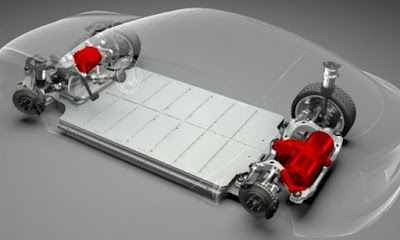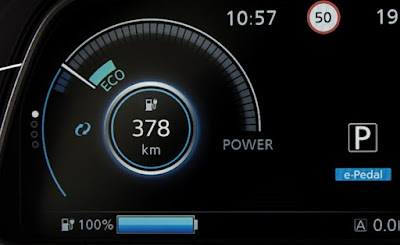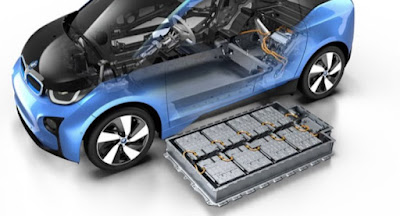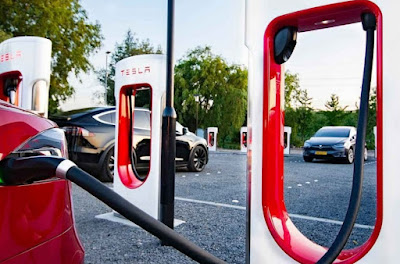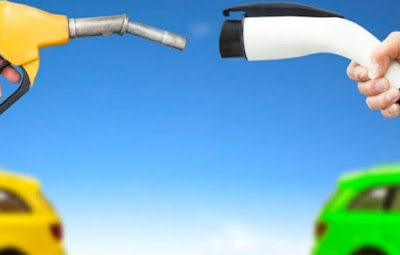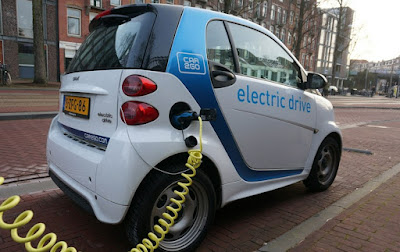 Electric cars are conquering more and more market segments and, within a few years, it is highly likely that the majority of newly registered vehicles will be electric. But is this push towards the electric justified by a solid technological platform or are the limits of electric cars still very evident, especially when compared with internal combustion engines?If you too have asked yourself questions about electric cars, you have come to the right guide: we will provide you with questions and answers all the information you need before buying an electric car, so as to be well aware of the advantages and disadvantages of having a “current” car.
Electric cars are conquering more and more market segments and, within a few years, it is highly likely that the majority of newly registered vehicles will be electric. But is this push towards the electric justified by a solid technological platform or are the limits of electric cars still very evident, especially when compared with internal combustion engines?If you too have asked yourself questions about electric cars, you have come to the right guide: we will provide you with questions and answers all the information you need before buying an electric car, so as to be well aware of the advantages and disadvantages of having a “current” car.READ ALSO -> Best app to find electric car charging stations
How does an electric car work?
On these cars the wheel traction is impressed by a electric motor high power. This engine works thanks to the electricity taken from one lithium battery, usually placed in place of the petrol tank or positioned immediately under the floor of the car.
The engine it can be present on one axle only (front or rear) or on both axles (all-wheel drive) and is definitely more performing (with the same weight and maximum power) compared to the corresponding internal combustion engines.
On electric cars it is not necessary to change the speed, since the engine immediately provides maximum torque even with stationary wheels and the power is supplied constantly: in fact it is never necessary to change gears or press a clutch, since the gears do not exist!
On electric cars, therefore, we always find the single-ratio automatic gearbox, with the possibility to move forward in the direction of travel (letter D), change the direction of travel (reverse or letter R), lock the gearbox in the parking position (P) or set the gearbox to neutral (N). There is no oil anywhere, there are no spark plugs or pistons and the classic mechanical moving parts are missing (with the exception of the internal blades of the electric motor): in fact the car is much quieter and more efficient compared to a vehicle with a combustion engine.
How many kilometers do I do with a “full”?
The autonomy of the electric car is determined by the size of the battery pack and the driving conditions in which we take the vehicle. The larger the battery in the car, the greater the range that we can travel with full (corresponding to 100% of the battery charge).
For electric vehicles, the parameter kilometers or miles per kilowatt hour (kWh) is used to indicate how far we can go with a kWh of electricity, i.e. the smallest unit of measurement for the stored current (corresponding to the liter of old gasoline). The more expensive models have over 300 kilometers of autonomy and quickly approach 500-600 kilometers with a full tank, ie values in line with the results obtainable with a full tank of diesel (on Euro-6 Diesel cars).
The cheapest electric cars or “city cars” have smaller batteries and hardly exceed 150 kilometers of autonomy, but they are designed for the city not for highway travel. The speed at which we go obviously also affects the autonomy: at higher speeds there will be higher electricity consumption, while at low speeds the autonomy increases (exactly the opposite of thermal cars, which consume a lot in the city).
One thing not to be underestimated with electric cars is the external temperature: the sudden changes in heat / cold can change the autonomy of the car even considerably, as well as quickly deteriorate the battery cells. For this reason (on high-end electric cars) we find the liquid cooled battery pack, so as to keep the temperature constant in both summer and winter.
Does the electric car battery deteriorate?
Just like the batteries of our smartphone, the batteries of the electric car also deteriorate with the passage of time and with the succession of discharge and charge cycles: after some time it is necessary to replace them in order to maintain a constant autonomy and to be able to recharge with maximum efficiency.
On many electric vehicles, the remaining battery charge, a very important value when we buy an electric car: this value is certified by the manufacturer and makes it clear how efficient the chosen battery pack is.
In any case, all producers now certify theirs batteries for a duration of about 5/8 years or 180,000 kilometers and usually the first battery replacement is offered by the house. The tips for increasing battery life are the same as for smartphones, namely:
- Never charge to 100%, but we do a recharge close to 80/90%
- Avoid bringing the battery to 0% or values below 20%
- Doing multiple small refills instead of one large refill
- Do not leave the car stationary with less than 30% remaining charge
- Use the car at least once a week
This could put a thermal car driver in trouble, but for the new generation nerds are known tips, therefore easily applicable also to electric cars.
How long does a refueling stop last?
So here we are with the most interesting question about electric cars: the duration of the refueling. At the moment it is not possible to fully recharge an electric car with the same times required for a full tank of petrol or diesel.
Just think that an electric car with a 60 kWh battery will take about 8 hours to charge from a 7 kW column, but luckily there are also much faster charging columns (from 22 kW, 40 kW, 50 kW and beyond). ), which in fact reduce i charging times in half an hour or so.
Separate speech for the Tesla car: the American cars produced by Elon Musk can charge at maximum speed directly from the dedicated columns (Tesla Supercharger), which always offer charging currents above 50 kW.
Does an electric car pollute less?
We must not underestimate theenvironmental aspect of electric cars: these vehicles have no muffler and do not emit any type of exhaust gas, so we can say that an electric car is much greener compared to old and new generation thermal cars.
Ma to say that the electric car does not pollute is wrong: pollution shifts to the production of electricity and the impact that the production of lithium batteries and other components can have. At the moment the ecological impact of electricity is still substantial, given that most of the energy is produced with coal plants (highly polluting) and gas turbine plants (less polluting).
Only by using electricity that comes exclusively from renewables (Sun, wind, water) will give electric cars the possibility to put the label on their chest ecological and clean car.
Conclusions
What we have illustrated to you is just a general smattering of electric cars and technological features that they carry with them. In fact these cars will delight those who love smart, modern and super connected things, without forgetting the people who particularly care about the environment. Probably the time to convince traditional drivers is not yet ripe, given the autonomy and average charging times.
To plan the routes of the stops to be made for recharging, we can use, in addition to the apps recommended in the link at the beginning of the guide, also the classic satellite navigators for smartphones, by installing the Android navigation app of the navigation app and maps for iPhone, so as to always find the nearest charging column.

